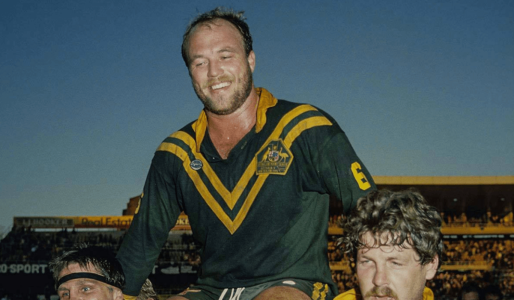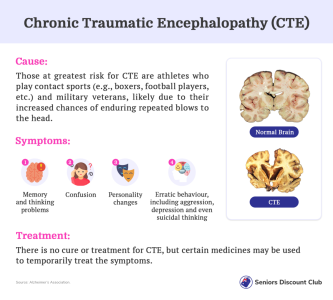Rugby legend Wally ‘King’ Lewis opens up about his ‘toughest’ battle yet
- Replies 4
If you happen to be a fan of the legendary Queensland rugby league player Wally Lewis, you'll already know that he has left an indelible mark on the sport. But now, it's his latest and toughest battle that has caught the public's attention.
The 'King' recently revealed to 60 Minutes that he suspects he's suffering from CTE (Chronic Traumatic Encephalopathy), a neurodegenerative condition that has forced him to step away from his sports presenting role at 9News Queensland in January this year.
In the interview, Wally Lewis recalled how there was a time in his life—when memory loss, forgetting birthdays and repeating stories began to occur—when he suspected something was amiss.
But it wasn't until he took a cognitive test that the severity of his condition began to set in.
According to his neurologist, Dr Rowena Mobbs, she is almost certain that he has CTE, which was likely triggered by countless tackles and the resulting repetitive head trauma over the years.

Recounting his experience, Lewis said that he struggled with the test and felt embarrassed when he was not able to recall simple words that he was given.
'For a lot of sports guys, I think most of us take on this belief that we've got to prove how tough we are, how rugged, and if we put our hands up and seek sympathy, then we're going to be seen as the real cowards of the game,' Lewis reflected in the interview.
'But we've got to take it on and admit that the problems are there.'
CTE has been found to be a long-term threat to various contact-sport participants, particularly athletes whose careers span a period of intense physical contact and trauma.
It is caused by repeated blows to the head, which has been linked to spotty memory, poor impulse control, and major depression. Difficulties with emotions and aggression may also be present.
Unfortunately, while there is much hype surrounding CTE diagnosis, the only definitive way to test for it during life is through brain tissue analysis, which is only possible post-mortem. This means that for people like Wally Lewis, it isn't possible to determine if he is indeed afflicted with CTE.
Despite speculation, there is a lot more research, education and awareness that needs to be done surrounding the condition. The good news is that it is receiving more attention, which brings us one step closer to a clear and conclusive diagnosis.
As for Lewis, the score is tied between him and his toughest opponent, and he doesn't expect it to stay that way.
'One of my first meetings with the doctor was when she asked me just to repeat simple things, and I think she gave me five things, and it might have been something like bus, dog, truck, camera, chair,' he recalled.
'She said, “Remember these,” and went over them two or three times and then said to me, “How are you feeling? Is everything OK? You don't feel nervous?” A minute later, she said, “What are the things I asked you to remember?” and I got two of them.'
He continued: 'Then sometime later after that, she said, “Do you remember what they were?” And I think I said bus, and she looked up, and yeah.'
'Pride's a wonderful thing, but there wasn't a lot of it around then,' he said.
Despite the significant toll on his health in later years, Lewis stated that he wouldn't change anything about his 14-year professional rugby league career.
'I loved the game that I played. I felt privileged to have played it and to have been given that chance,' he said.
'When you go out there, and you're wearing the representative jerseys, particularly the one for Australia, you feel 10-foot tall and bulletproof. Well, you might think you are, but actually, you're not.'

Following the example of Wally Lewis, who courageously shared his own diagnosis, we encourage all our members to seek help if needed.
We strongly advise everyone to pay attention to their bodies and, if they sense something is amiss, to immediately seek advice from a GP or specialist.
Dealing with cognitive challenges can be an incredibly tough personal struggle, but we want you to know that we are here to provide the necessary support throughout your journey. We believe in ensuring that you receive the right assistance to cope with any difficulties you may encounter.
What are your thoughts on this news, members? Please feel free to share your opinions in the comments section below.
The 'King' recently revealed to 60 Minutes that he suspects he's suffering from CTE (Chronic Traumatic Encephalopathy), a neurodegenerative condition that has forced him to step away from his sports presenting role at 9News Queensland in January this year.
In the interview, Wally Lewis recalled how there was a time in his life—when memory loss, forgetting birthdays and repeating stories began to occur—when he suspected something was amiss.
But it wasn't until he took a cognitive test that the severity of his condition began to set in.
According to his neurologist, Dr Rowena Mobbs, she is almost certain that he has CTE, which was likely triggered by countless tackles and the resulting repetitive head trauma over the years.

Queensland rugby league legend Wally Lewis has revealed he is facing his toughest opponent yet: a dementia diagnosis. Credit: Facebook/NRL.
Recounting his experience, Lewis said that he struggled with the test and felt embarrassed when he was not able to recall simple words that he was given.
'For a lot of sports guys, I think most of us take on this belief that we've got to prove how tough we are, how rugged, and if we put our hands up and seek sympathy, then we're going to be seen as the real cowards of the game,' Lewis reflected in the interview.
'But we've got to take it on and admit that the problems are there.'
CTE has been found to be a long-term threat to various contact-sport participants, particularly athletes whose careers span a period of intense physical contact and trauma.
It is caused by repeated blows to the head, which has been linked to spotty memory, poor impulse control, and major depression. Difficulties with emotions and aggression may also be present.
Unfortunately, while there is much hype surrounding CTE diagnosis, the only definitive way to test for it during life is through brain tissue analysis, which is only possible post-mortem. This means that for people like Wally Lewis, it isn't possible to determine if he is indeed afflicted with CTE.
Despite speculation, there is a lot more research, education and awareness that needs to be done surrounding the condition. The good news is that it is receiving more attention, which brings us one step closer to a clear and conclusive diagnosis.
As for Lewis, the score is tied between him and his toughest opponent, and he doesn't expect it to stay that way.
'One of my first meetings with the doctor was when she asked me just to repeat simple things, and I think she gave me five things, and it might have been something like bus, dog, truck, camera, chair,' he recalled.
'She said, “Remember these,” and went over them two or three times and then said to me, “How are you feeling? Is everything OK? You don't feel nervous?” A minute later, she said, “What are the things I asked you to remember?” and I got two of them.'
He continued: 'Then sometime later after that, she said, “Do you remember what they were?” And I think I said bus, and she looked up, and yeah.'
'Pride's a wonderful thing, but there wasn't a lot of it around then,' he said.
Despite the significant toll on his health in later years, Lewis stated that he wouldn't change anything about his 14-year professional rugby league career.
'I loved the game that I played. I felt privileged to have played it and to have been given that chance,' he said.
'When you go out there, and you're wearing the representative jerseys, particularly the one for Australia, you feel 10-foot tall and bulletproof. Well, you might think you are, but actually, you're not.'
Key Takeaways
- Queensland rugby league legend Wally Lewis has revealed his recent dementia diagnosis, likely due to a condition known as CTE (Chronic Traumatic Encephalopathy) from years of head trauma in his football career.
- Lewis noted problems with short-term memory as signs of the condition, which led to his stepping down from his sports presenting role at 9News Queensland in January.
- Lewis's neurologist, Dr Rowena Mobbs, is mostly certain that his condition is CTE, brought on by repetitive head trauma through tens of thousands of tackles.
- Despite the impact on his health, Lewis said that he would not change anything about his 14-year professional rugby league career.
Following the example of Wally Lewis, who courageously shared his own diagnosis, we encourage all our members to seek help if needed.
We strongly advise everyone to pay attention to their bodies and, if they sense something is amiss, to immediately seek advice from a GP or specialist.
Dealing with cognitive challenges can be an incredibly tough personal struggle, but we want you to know that we are here to provide the necessary support throughout your journey. We believe in ensuring that you receive the right assistance to cope with any difficulties you may encounter.
What are your thoughts on this news, members? Please feel free to share your opinions in the comments section below.








